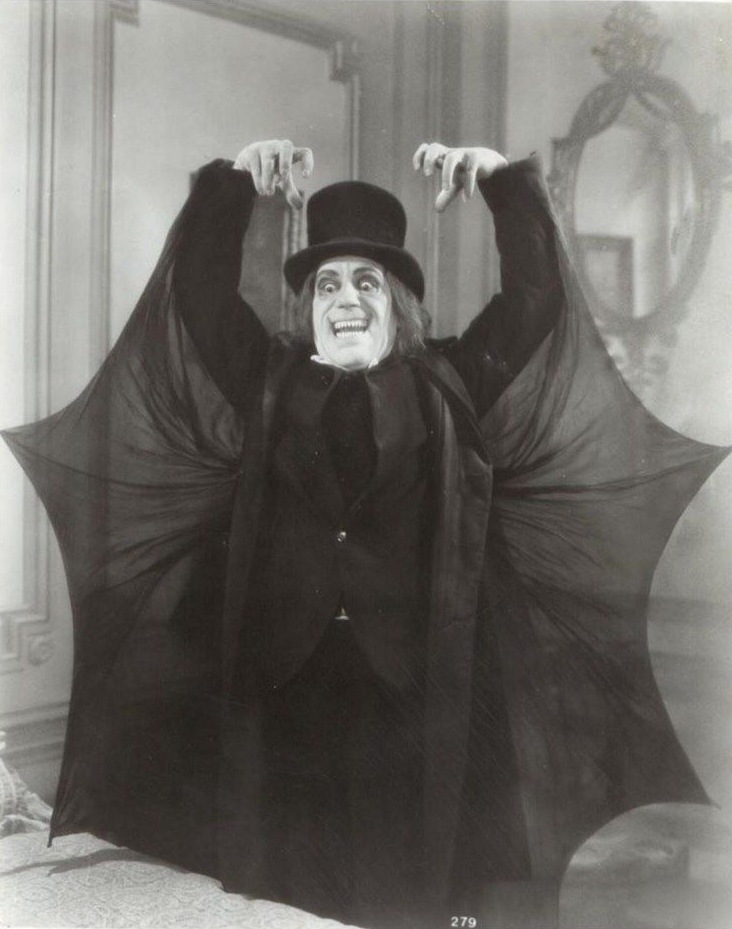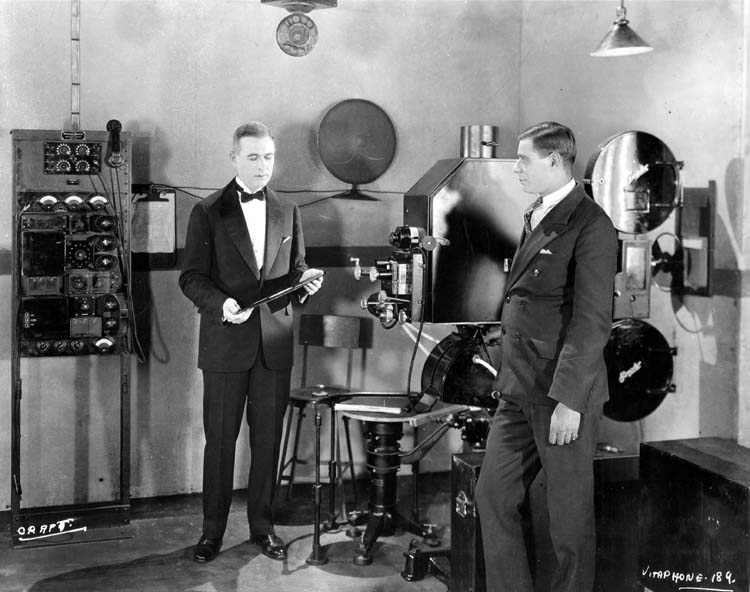|
A Plantation Act
''A Plantation Act'' (1926) is an early Vitaphone sound-on-disc short film starring Al Jolson, the first film that Jolson starred in. Jolson in blackface sings three of his hit songs: " April Showers", "Rock-a-Bye Your Baby with a Dixie Melody", and "When the Red, Red Robin (Comes Bob, Bob, Bobbin' Along)". The film presents him as if in a live stage performance, complete with three curtain calls at the finish. Jolson is dressed as a plantation worker for the entirety of the short, but only performs his entrance in character. For the remainder of the film he speaks and performs to the audience as Al Jolson. The film features one set, that of a cabin with farmland behind it, and a cage with live chickens. Two fixed film cameras are used to give a wide shot and a medium shot of Jolson and the set. Its premiere took place on October 7, 1926, at the Colony Theatre, New York, where it concluded a program of short subjects that accompanied Warner Brothers' second feature-length Vit ... [...More Info...] [...Related Items...] OR: [Wikipedia] [Google] [Baidu] |
Al Jolson
Al Jolson (born Eizer Yoelson; June 9, 1886 – October 23, 1950) was a Lithuanian-American Jews, Jewish singer, comedian, actor, and vaudevillian. He was one of the United States' most famous and highest-paid stars of the 1920s, and was self-billed as "The World's Greatest Entertainer." Jolson was known for his "shamelessly sentimental, melodramatic approach" towards performing, as well as for popularizing many of the songs he sang. Jolson has been referred to by modern critics as "the king of blackface performers." Although best remembered today as the star of the first talking picture, ''The Jazz Singer'' (1927), he starred in a series of successful musical films during the 1930s. After the attack on Pearl Harbor in December 1941, he was the first star to entertain troops overseas during World War II. After a period of inactivity, his stardom returned with ''The Jolson Story'' (1946), in which Larry Parks played Jolson, with the singer dubbing for Parks. The formula was repeat ... [...More Info...] [...Related Items...] OR: [Wikipedia] [Google] [Baidu] |
Lost Film
A lost film is a feature or short film that no longer exists in any studio archive, private collection, public archive or the U.S. Library of Congress. Conditions During most of the 20th century, U.S. copyright law required at least one copy of every American film to be deposited at the Library of Congress at the time of copyright registration, but the Librarian of Congress was not required to retain those copies: "Under the provisions of the act of March 4, 1909, authority is granted for the return to the claimant of copyright of such copyright deposits as are not required by the Library." A report created by Library of Congress film historian and archivist David Pierce claims: * 75% of original silent-era films have perished. * 14% of the 10,919 silent films released by major studios exist in their original 35 mm or other formats. * 11% survive only in full-length foreign versions or film formats of lesser image quality. Of the American sound films made from 1927 to 1 ... [...More Info...] [...Related Items...] OR: [Wikipedia] [Google] [Baidu] |
Rediscovered American Films
{{disambiguation ...
Rediscovered may refer to: * ''Rediscovered'' (A1 album), 2012 * ''Rediscovered'' (Andreas Johnson album), 2008 * ''Rediscovered'' (Mississippi John Hurt album), 1998 * '' Re:(disc)overed'', an album by Puddle of Mudd, 2011 See also * List of rediscovered films This is a list of rediscovered films that, once thought lost, have since been discovered, in whole or in part. See List of incomplete or partially lost films and List of rediscovered film footage for films which were not wholly lost. For a fil ... [...More Info...] [...Related Items...] OR: [Wikipedia] [Google] [Baidu] |
American Musical Films
American(s) may refer to: * American, something of, from, or related to the United States of America, commonly known as the "United States" or "America" ** Americans, citizens and nationals of the United States of America ** American ancestry, people who self-identify their ancestry as "American" ** American English, the set of varieties of the English language native to the United States ** Native Americans in the United States, indigenous peoples of the United States * American, something of, from, or related to the Americas, also known as "America" ** Indigenous peoples of the Americas * American (word), for analysis and history of the meanings in various contexts Organizations * American Airlines, U.S.-based airline headquartered in Fort Worth, Texas * American Athletic Conference, an American college athletic conference * American Recordings (record label), a record label previously known as Def American * American University, in Washington, D.C. Sports teams Soccer * B ... [...More Info...] [...Related Items...] OR: [Wikipedia] [Google] [Baidu] |
1920s Rediscovered Films
Nineteen or 19 may refer to: * 19 (number), the natural number following 18 and preceding 20 * one of the years 19 BC, AD 19, 1919, 2019 Films * ''19'' (film), a 2001 Japanese film * ''Nineteen'' (film), a 1987 science fiction film Music * 19 (band), a Japanese pop music duo Albums * ''19'' (Adele album), 2008 * ''19'', a 2003 album by Alsou * ''19'', a 2006 album by Evan Yo * ''19'', a 2018 album by MHD * ''19'', one half of the double album ''63/19'' by Kool A.D. * ''Number Nineteen'', a 1971 album by American jazz pianist Mal Waldron * ''XIX'' (EP), a 2019 EP by 1the9 Songs * "19" (song), a 1985 song by British musician Paul Hardcastle. * "Nineteen", a song by Bad4Good from the 1992 album '' Refugee'' * "Nineteen", a song by Karma to Burn from the 2001 album ''Almost Heathen''. * "Nineteen" (song), a 2007 song by American singer Billy Ray Cyrus. * "Nineteen", a song by Tegan and Sara from the 2007 album '' The Con''. * "XIX" (song), a 2014 song by Slipk ... [...More Info...] [...Related Items...] OR: [Wikipedia] [Google] [Baidu] |
Vitaphone Short Films
Vitaphone was a sound film system used for feature films and nearly 1,000 short subjects made by Warner Bros. and its sister studio First National from 1926 to 1931. Vitaphone was the last major analog sound-on-disc system and the only one that was widely used and commercially successful. The soundtrack was not printed on the film itself, but issued separately on phonograph records. The discs, recorded at rpm (a speed first used for this system) and typically in diameter, would be played on a turntable physically coupled to the projector motor while the film was being projected. It had a frequency response of 4300 Hz. Many early talkies, such as ''The Jazz Singer'' (1927), used the Vitaphone system. The name "Vitaphone" derived from the Latin and Greek words, respectively, for "living" and "sound". The "Vitaphone" trademark was later associated with cartoons and other short subjects that had optical soundtracks and did not use discs. Early history In the early 19 ... [...More Info...] [...Related Items...] OR: [Wikipedia] [Google] [Baidu] |
Blackface Minstrel Shows And Films
Blackface is a form of theatrical makeup used predominantly by non-Black people to portray a caricature of a Black person. In the United States, the practice became common during the 19th century and contributed to the spread of racial stereotypes such as the "happy-go-lucky darky on the plantation" or the " dandified coon". By the middle of the century, blackface minstrel shows had become a distinctive American artform, translating formal works such as opera into popular terms for a general audience. Early in the 20th century, blackface branched off from the minstrel show and became a form in its own right. In the United States, blackface declined in popularity beginning in the 1940s and into the civil rights movement of the 1950s and 1960s,Clark, Alexis.How the History of Blackface Is Rooted in Racism. ''History''. A&E Television Networks, LLC. 2019. and was generally considered highly offensive, disrespectful, and racist by the turn of the 21st century, though the practic ... [...More Info...] [...Related Items...] OR: [Wikipedia] [Google] [Baidu] |



